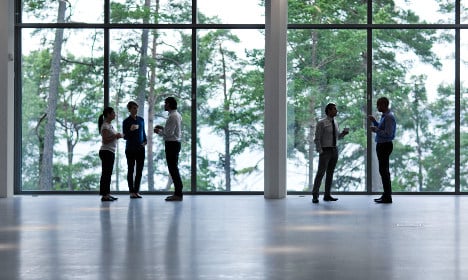p { margin-bottom: 0.25cm; line-height: 120%; }a:link { }
The United States remains on top in Lausanne-based IMD's 2015 World Competitiveness Ranking, ahead of Hong Kong and Singapore, which overtook Switzerland.
Canada (fifth), Norway (seventh), Denmark (eighth), Sweden (ninth) and Germany (tenth) remain in the top-10, while Luxembourg moves to sixth from 11th place in 2014.
The rankings of 61 countries are based on statistical indicators, as well as a survey of 6,234 international executives.
One of the crucial factors in the ranking is the “question of business efficiency”, IMD said.
This concerns “the extent to which the national environment encourages enterprises to perform in an innovative, profitable and responsible manner”.
IMD assesses this through indicators related to productivity such as the labour market, finance, management practices and the attitudes and values of the business environment.
“Simply put, business efficiency requires greater productivity and the competitiveness of countries is greatly linked to the ability of enterprises to remain profitable over time,” Professor Arturo Bris, IMD World Competitiveness Centre director, said in a statement.
READ ALSO: Sweden must be able to attract global talent
Tech-savvy Sweden is known for being a booming business country for start-ups and remains within the top-10 in the IMD rankings.
But high costs, taxes and the relatively high unemployment rate of 7.8 percent have pushed it from fifth place in 2014 to ninth in 2015. However, the Nordic country also gets a nod for being efficiently structured and organized, and it is comparatively inexpensive to lay off staff.
“It is a pity that we're dropping, of course. There is no investment, and that depends on political uncertainty concerning energy politics, the debate on profits in welfare services, and taxes on transport, among other things,” Jonas Frycklund, economist at the Confederation of Swedish Enterprise (Svenskt Näringsliv), told the TT news agency.
But economist Torbjörn Hållö of the Swedish Trade Union Confederation (LO) offered a different explanation, saying: “Declining competitiveness is a trend. High unemployment and relatively weak growth are weaknesses. Even the areas of health and environment, where we usually excel, are dropping. We need better ways to combat unemployment and protect what we do best: research, health and environment.”
The IMD 2015 World Competitiveness Rankings
1. USA
2. Hong Kong
3. Singapore
4. Switzerland
5. Canada
6. Luxembourg
7. Norway
8. Denmark
9. Sweden
10. Germany



 Please whitelist us to continue reading.
Please whitelist us to continue reading.
Member comments